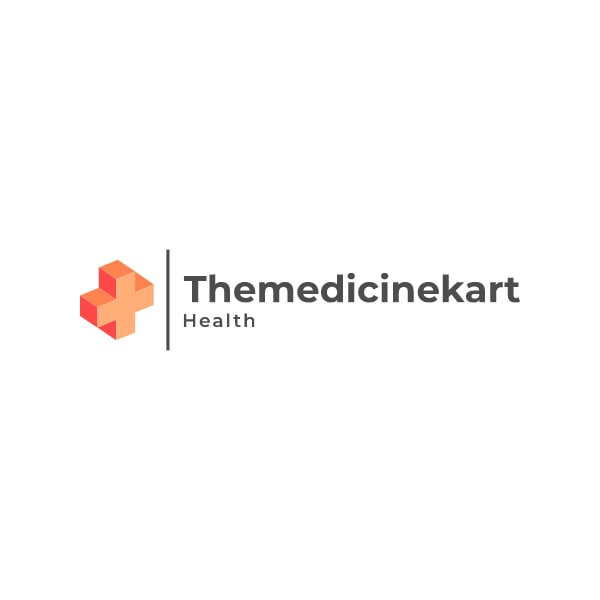Exploring the Future of Online Medicine Platforms
- Medicine kart
- May 9, 2025
- 4 min read
The healthcare landscape has been dramatically reshaped by the advent of online medicine platforms. As technology continues to evolve, these platforms are changing how patients access medical care, offering convenience and efficiency previously unimaginable. With more people turning to digital solutions for their healthcare needs, it’s vital to explore the future of this promising sector.
What is Online Medicine?
Online medicine, often referred to as telemedicine, encompasses a broad range of services that allow patients to receive medical care without a physical visit to a doctor's office. This includes video consultations, online prescriptions, and electronic health records. The growth of these services is driven by advancements in technology, changing consumer expectations, and increasing healthcare costs.
For instance, a recent survey found that over 75% of patients prefer online consultations for non-emergency situations. This shift has created opportunities for healthcare providers to expand their offerings and engage with patients more effectively.

Advantages of Online Medicine
Online medicine platforms offer numerous advantages that benefit both patients and healthcare providers. Here are some key benefits:
Convenience and Accessibility
One of the most significant advantages of online medicine is convenience. Patients can access healthcare services from the comfort of their homes, eliminating the need for travel and long wait times. This is particularly beneficial for individuals with mobility issues or those living in remote areas.
Cost-Effective Solutions
Healthcare costs are a growing concern for many. Online medicine can reduce expenses associated with traditional healthcare—such as transportation and missed work. Moreover, many online services offer competitive pricing, making it easier for patients to afford necessary care.
Improved Patient Engagement
Platforms that provide online medical services often include tools that enhance patient engagement. Features like reminders for medication, follow-up appointments, and educational resources help patients take a more active role in managing their health.

Challenges Facing Online Medicine
Despite its growth, online medicine is not without challenges. As the industry expands, it must contend with various issues that could hinder its potential.
Security and Privacy Concerns
The protection of patient data is paramount in online medicine. High-profile data breaches have raised concerns about the safety of sensitive medical information. Platforms must ensure they implement robust security measures to protect patient confidentiality.
Regulatory Hurdles
Telemedicine regulations vary significantly by region. Some areas have restrictive laws that can limit access to care, while others have embraced telehealth. Navigating this complex landscape can be a challenge for both providers and patients.
Technology Access and Literacy
While many can access telemedicine, some individuals, especially the elderly or those in low-income areas, may lack the necessary technology or skills to utilize these platforms effectively. Bridging this digital divide is crucial for ensuring equitable access to online medical services.
The Role of Technology in Shaping Online Medicine
Technological advancements are at the core of online medicine's transformation. Innovations such as artificial intelligence (AI), machine learning, and blockchain are paving the way for more advanced and secure healthcare solutions.
AI and Machine Learning
AI can help streamline administrative tasks, improving the efficiency of healthcare providers. For instance, AI-powered chatbots can handle appointment scheduling, medication reminders, and even initial patient assessments. This allows healthcare professionals to focus on more complex cases.
Telemedicine Platforms
Telemedicine platforms are becoming increasingly sophisticated. Comprehensive services now combine video conferencing, secure messaging, and health tracking all in one application. These platforms not only facilitate virtual consultations but also enhance patient management, making them valuable tools in the healthcare ecosystem.
Blockchain for Security
The use of blockchain technology in healthcare could revolutionize how patient data is stored and shared. With blockchain's decentralized nature, it can provide an extra layer of security and transparency, ensuring that patient information is safe and only accessible to authorized individuals.

The Future of Online Medicine Platforms
As we look to the future, several trends are likely to shape the growth of online medicine platforms.
Integration of Wearable Technology
Wearable technology is on the rise, and its integration with online medicine platforms will provide real-time health data to healthcare providers. This will allow for more personalized treatment plans and proactive patient care. Monitoring vital signs, activity levels, and other health metrics can help doctors make informed decisions and intervene when necessary.
Personalized Healthcare
The future of online medicine will tilt towards personalized healthcare, where treatments are tailored to individual patients’ genetic profiles, lifestyle choices, and preferences. Online platforms will gather data that can predict a patient’s health risks and suggest preventative measures.
Increased Collaboration
Online medicine will foster improved collaboration among healthcare professionals. Interdisciplinary teams can use online platforms to consult on complex cases, share insights, and work together in real time, improving patient outcomes.
Greater Regulatory Support
As online medicine becomes more mainstream, there’s a growing recognition of the need for clear regulations. Governments and health organizations are likely to create standardized policies that promote the safe and effective use of telemedicine, encouraging more widespread adoption.
Embracing the Online Medicine Revolution
Healthcare providers and patients alike stand to benefit from the rise of online medicine platforms. The convenience, efficiency, and cost savings they offer are transforming the healthcare experience. As we continue to advance technologically, it’s essential for providers to stay informed and adapt to the evolving landscape.
For those seeking reliable online medical resources, platforms like themedicinekart are paving the way for a more connected and efficient healthcare system. By leveraging the benefits of technology while addressing challenges and pushing for innovation, we can look forward to a future where online medicine plays a central role in healthcare delivery.
As we explore these advancements, it is also crucial to keep patient care at the forefront. Continuous feedback from patients will help shape the best practices for online services, ensuring that healthcare remains accessible, efficient, and tailored to individual needs.





Comments